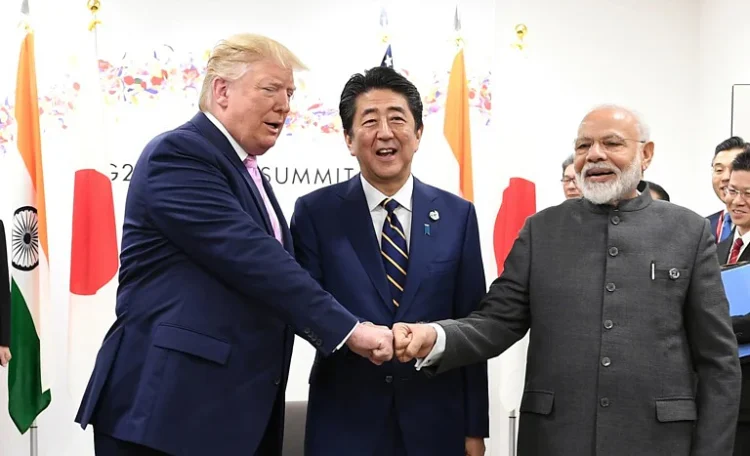In 2007, Shinzo Abe anticipated the idea of Quad to the Indian Parliament. In his speech titled ‘the Confluence of the Two Seas’, Abe promoted the idea of ‘the Arc of Freedom and Prosperity’ that would be moulded along the outer perimeter of the Eurasian continent. Tomohiko Taniguchi, the former Special Advisor to Japan’s then Prime Minister Shinzo Abe highlighted the strong relationship between PM Narendra Modi and Shinzo Abe that pave the way for QUAD. Shinzo Abe was back in action after recovering from health issues. Did that impinge on some stakeholders?
Regarding other QUAD nations, the US is thinking of relaxing tariffs/ restrictions on certain imports from China for reducing consumer prices. Australian Foreign Minister Penny Wong stated that Australia will press China to end trade “blockages” when she meets with Wang Yi, Chinese Foreign Minister on the sidelines of a Group of 20 meeting in Bali, Indonesia.
How much heft should one place on the Quad in progressing a free and open Indo-Pacific? While some view the Quad’s return as the bulwark against further corrosion of the rules-based order, a more profound assessment is needed of how truly companionable Quad countries are with respect to the area of their interest, threats and geostrategic needs. This compatibility, or lack of it, has substantial consequences for the future of the Quad.
In order to succeed, the Quad needs to evolve from a China-focused club of four to a group of first movers on a range of specific practical challenges. The most acceptable way to do this is for the four countries to create the core of a rotating set of problem-solving coalitions in the Indo-Pacific. This rotating schedule would always include the Quad countries and invite in other regional allies on an ad hoc and issue-by-issue basis, relying on which countries bring the most capacity—and will—to the table.
The Quad may not be a full-scale coalition yet, but a new “minilateral” is taking shape. Bharat welcomed Quad’s focus on vaccines and sharing responsibility. Bharat is by now supplying 60% of the global vaccines. The initiative will further enhance Bharat’s vaccine manufacturing capacity. This could also pave the way for Bharat to become the manufacturing destination for Quad countries, thus reducing China’s dependence. If Quad arises as an economic powerhouse, it will be beneficial to the entire region.
To lead, the Quad countries must demonstrate in deed, not just word, that they are making significant contributions to solving the more considerable economic, transnational, and environmental challenges that preoccupy nearly everyone else in the Indo-Pacific. This can only be achieved by Bharat’s enhanced and leading role at all levels. As in Sep 2020 at the UN, PM Modi reiterated that a “reformed multilateralism” must be at the centre of global politics. Arrangements “determined half a century ago cannot be sustainable in the 21st century”, and the multilateral order should reflect the “new reality”.
The author: Mr Prasoon Sharma is the Pentland-Churchill fellow for Global Public Policy leadership at New York University (NYU) and University College London (UCL).

















Comments